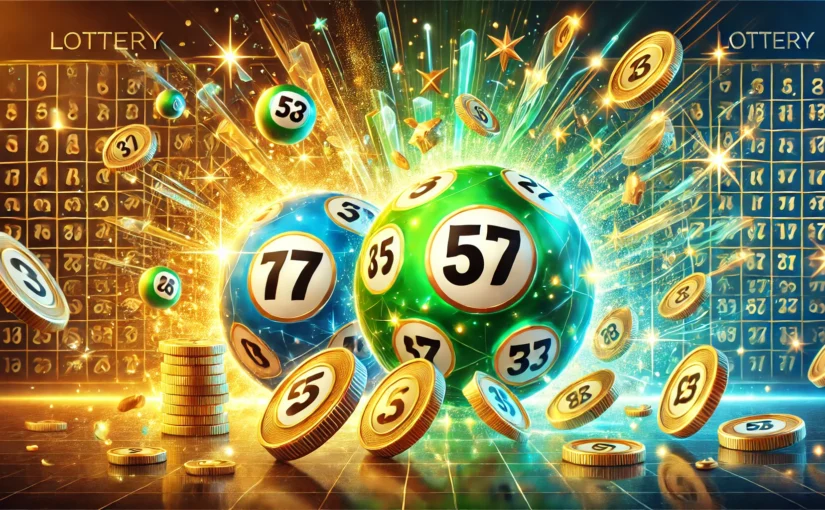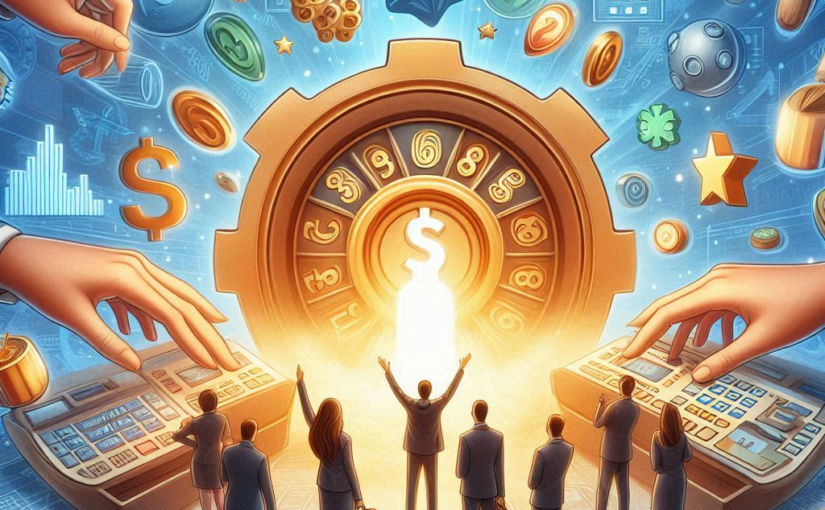Introduction
The idea of finding the “best” lottery numbers to play has fascinated people for generations. Many believe certain numbers are luckier than others or that patterns can improve their chances of winning. But are these beliefs rooted in fact or fiction? In this article, we’ll explore common myths about lottery numbers, explain how the lottery works, and help you decide the best approach to choosing your numbers.
1. Myth: Some Numbers Are Luckier Than Others
Many players believe that certain numbers—like 7 or combinations of birthdays—are inherently luckier. While these numbers may hold personal or cultural significance, they don’t actually influence your odds.
- The Truth: Lottery numbers are drawn randomly. Each number has the same chance of being drawn, regardless of its frequency in previous draws.
- Why It’s Popular: Luck is a comforting concept, and people naturally gravitate toward numbers with personal or symbolic meaning.
Instead of focusing on “lucky” numbers, remember that all combinations have an equal probability.
2. Myth: Avoid Numbers That Were Drawn Recently
Some players think avoiding numbers that have appeared in recent draws increases their chances of winning. This belief is based on the gambler’s fallacy, the idea that outcomes in random events “even out” over time.
- The Truth: Lottery draws are independent events. The numbers drawn in the past have no impact on the outcome of future draws.
- Why It’s Popular: People often misunderstand randomness and look for patterns where none exist.
Feel free to play any number, whether it appeared last week or not—it won’t affect your chances.
3. Myth: Using Patterns or Sequences Improves Your Odds
Players often choose visually appealing patterns or sequences, like numbers in a row, diagonal lines, or even palindromes. These combinations feel unique and satisfying, but they don’t give you an edge.
- The Truth: Random number generators don’t recognize patterns, so such combinations are no more likely to win than random selections.
- Why It’s Popular: Humans are naturally drawn to patterns and symmetry, making these combinations feel “special.”
Playing unique patterns doesn’t hurt, but it doesn’t help either. It’s all about personal preference.
4. Myth: Quick Picks Are Less Likely to Win
Many lottery players think manually choosing numbers increases their odds compared to using a Quick Pick option, where numbers are randomly assigned by a computer.
- The Truth: Quick Picks and manually chosen numbers have the exact same odds of winning. In fact, the majority of jackpot winners use Quick Picks simply because they’re more convenient.
- Why It’s Popular: Some players prefer the sense of control that comes with choosing their own numbers.
Whether you use a Quick Pick or pick your own, the odds are the same—so choose whichever method you enjoy.
5. Myth: More Tickets Guarantee a Win
Buying more tickets increases your chances, but it doesn’t guarantee a win unless you can afford to buy every possible combination (which is almost always financially impractical).
- The Truth: If a lottery has odds of 1 in 14 million, buying 10 tickets only increases your odds to 1 in 1.4 million—a tiny improvement for a significant cost.
- Why It’s Popular: More entries feel like more chances, which is true, but the change in odds is minimal.
If you want to increase your chances affordably, consider joining a lottery pool or syndicate to buy tickets as a group.
6. Choosing Numbers for Better Payouts
While no numbers are “better” for winning, you can improve your chances of keeping the full prize if you win.
- Avoid Popular Numbers: Many people choose numbers based on birthdays or significant dates, which limits the range to 1–31. By choosing numbers above 31, you may reduce the chance of splitting the jackpot.
- Uncommon Patterns: Avoid common sequences like 1-2-3-4-5-6 or patterns on the ticket grid to reduce the likelihood of shared winnings.
These tactics won’t improve your odds of winning but may maximize your share if you hit the jackpot.
7. The Best Approach: Randomness Is Key
Since lottery draws are entirely random, the best numbers to play are the ones you feel most comfortable with. Whether they hold personal significance or are randomly chosen, the outcome is equally unpredictable.
- Use a Random Number Generator: For a truly random selection, many lotteries or online platforms, like Dewakoin, provide tools to help you pick numbers.
- Stick to a Budget: Your approach to picking numbers matters less than staying within a responsible budget. Play for fun, not for profit.
Conclusion
There’s no magic formula or “best” lottery numbers to play. The belief in lucky numbers, patterns, or sequences is rooted in myths that don’t hold up against the mathematics of random draws. The truth is, every combination of numbers has the same chance of winning.
Whether you use Quick Picks, personal favorites, or random generators, the key is to enjoy the process and play responsibly. Platforms like Dewakoin make it easy to play and explore alternative games with better odds and exciting gameplay.
Remember, the lottery is a game of chance—so pick your numbers, dream big, and let luck take care of the rest!


